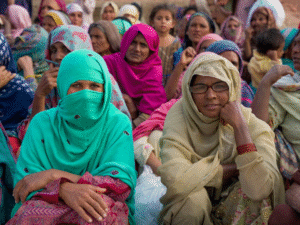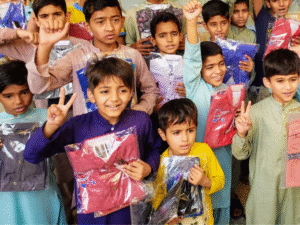A genetic blood disorder that has a long-lasting impact on countless families in the world is called Thalassemia. It’s an undetected disorder that is affecting numerous children and putting families under stress, a major public health concern in Pakistan. It is spreading particularly in regions with a lack of resources and awareness. Hands of Hope aims to raise awareness of this concerning health problem and to inspire groups to address it.
What is Thalassemia?
Thalassemia is an inherited blood disorder in children that decreases the formation of hemoglobin. When the body stops producing enough hemoglobin, the red blood cells will become weak and resulting in severe anemia. Thalassemia is transmitted from parents to their offspring unknowingly. Alpha-thalassemia and beta-thalassemia are the two main types of Thalassemia. When a child is born, he will be healthy but experience some symptoms like jaundice, fatigue, and slow growth in the first two years. If the proper treatments are not given, these symptoms will lead to complications and reduce life expectancy.
Thalassemia in Pakistan:
Pakistan is one of those countries that has one of the highest rates of thalassemia all over the world. Estimatively, over 100,000 children are facing Thalassemia disorder, and 5000 to 6000 cases are diagnosed every year. The main cause of the increasing percentage of Thalassemia in Pakistan is marriages between relatives, and the unawareness of the disorder. a lack of widespread pre-marital screening programs, and insufficient thalassemia awareness Pakistan.
The healthcare system is being consumed by the number of people affected by Thalassemia. People living in rural areas face poverty and a lack of resources, struggling to get medical care for their children. Treatment for thalassemia is not just complex but also expensive, which pushes the families into poverty, or the expenses are not allowing them to get the treatment done.
Thalassemia patients require regular blood transfusions, which are essential for their treatment and health, but due to the shortage of blood, the efforts of many organizations went in vain, which is an open threat to life and a risk to patient’s health. However, less advanced resources for diagnosis in many areas cause an increase in the number of patients that remain undiagnosed or are identified late.
How Thalassmeia Affects Every Aspect of Life:
A child is affected by Thalassemia, but it burdens the whole family by creating a series of challenges:
- Social Stigma: The judgmental communities in some areas isolate the child and family due to unawareness and a lack of knowledge that prevents the families from taking action and talking about their difficulties.
- Physical Burden: After every two to four weeks, a Thalassemia patient requires regular and proper blood transfusions that build up iron in the body. The accumulation of iron can damage crucial organs heart, liver, etc. A regular chelation therapy is required to eliminate excessive iron, to make it possible for children to go to school and participate in various activities
- Financial stability: Thalassemia treatment requires a huge amount of money for medication, therapy, blood transfusions, and testing. The majority of Pakistani families can’t afford the amount for thalassemia treatment, so they end up selling assets, taking loans, and unfortunately, stop the treatment, which affects a life.
Treatment and Management:
Treatment and Management for Thalassemia mainly focus on the symptoms and effectively enhancing the quality of life. Thalassemia can be treated with the following medical treatments:
- Regular Blood Transfusions: Regular blood transfusions after every two to four weeks can be a lifeline for a patient, building red blood cells that help in fighting anemia.
- Iron Chelation Therapy: Chelation Therapy helps to remove excessive iron in the body, which prevents organ damage. It’s an essential component of a patient’s routine that can be given by pump or pills.
- Bone Marrow Transplant (BMT): Thalassemia can be treated by BMT. A sibling who is compatible for donating bone marrow. BMT is a complex and expensive procedure that requires care. Unfortunately, Pakistan’s access to BMT is highly restricted.



